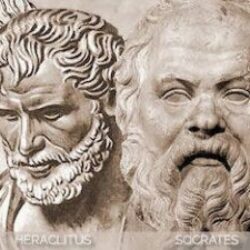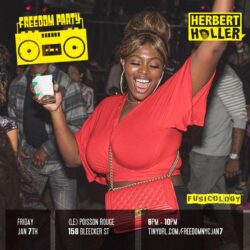Love, racism and betrayal in Memphis
Memphis is a city in Tennessee, a TV show and a Broadway play. What is so special about this Mid-Southern city, that it attracted so much attention on the entertainment scene? The city, famous for the largest pork BBQ contest in the world, has people diving into its roots, its history and its class.
On Broadway, Memphis is a show about music, race, love and change. Addressing major issues, touching on controversial topics, playing with emotions and assigning roles, it offers a diverse multitude of scenes. It is mostly easy on the eyes, primarily playful in nature, but combined with potentially the most notorious topic of the 20th century, racism, immediately assigning a meaningful presence to the play.
Memphis instantly opens with an elaborate dance number and cheerful old school music with a rock crossover, called Rock ‘n’ Roll, to appease the mixed public of the 50s. White guy, Christian Slater type, stumbles out and calls to people’s souls with his music. He has no preconceived notions, fear or anything to lose for that matter. He simply loves music, specifically black music, as we find out shortly. The time was 1950’s. The city was Memphis. His name was Huey Calhoun. Skin colors fade away and music reigns, the only language spoken by all races and nations.
Bringing the fiery flavor of the music to the other side had its challenges. Huey gets a temporary gig at a store selling records and despite seeing phenomenal success and bringing obvious financial incentives he was instantly fired for selling ‘black music’. He stumbles into a small club owned by a black man where black music was played. There he finds a beautiful young girl, who steals his heart with her songs and her looks. He shocks everyone with his presence there, repulses people with his infatuation with the music played there and alarms them with his attraction for Felicia Farrell, the girl who is just as obsessed with music as Huey. Both sides had no faith at first. Felicia’s brother, Delray, who is also that club owner, refused to see this strange white kid as hope, way of the future or even as a fan. He simply wanted him to go away and leave everyone, including his sister, alone.
Felicia didn’t feel that way thou. Coming to visit Huey she put her heart and music career into his hands. She knew that the world didn’t seem ready for her, but she took a chance and a chance was all Huey needed. Shopping to radio stations, hustling and breaking barriers of perception of the time, he didn’t care about being turned down. He felt that people were ready for a change and he was right. His supporters at the time must have been the grandparents of Obama voters in 2008. Open-minded and standing by to receive something new, they gave him a small base of support at first and that was enough. He may only had one card to play, but he played it with ferocity of a tiger, determination of a blinded bull and with faith of a saint.
Every act of Memphis is thoroughly mixed in with elaborate and fun stage installations, with cast and music seemingly coming from all directions: top, bottom, left and right.
Trying to bridge the color gap in church and radio Huey pushed and pushed, putting himself into the most awkward positions, while always getting what he wanted. Poor, uneducated, abused through childhood and harassed in this effort, he stayed resilient. He may have been a DJ, but he pushed with the resiliency of a salesman.
The music numbers of Memphis were all filled with simple but thoughtful messages. ‘Lord Make Me Stronger‘ calls for the strength to accept the change perhaps more than to make the actual change happen, which at times is far harder.
Lack of accepted standards caused plenty of commotion off of Huey’s game. Not unlike today’s times thou, it equaled a direct financial gain and perhaps for the first time ever gave birth to a true commercial approach in music. After all, this was the time of Elvis, approaching the times of The Beatles and The Supremes, all acts well known for bringing major change into music by driving crowds wild and making more money than ever imagined. Breaking barriers and norms, Huey Calhoun also redefined the role of a Disc Jockey. Getting on live radio, instead of spinning records offered a new number. It also turned heads, at first away, but then toward the new approach in music on the radio. Hope was constantly mixed with pain and looking forward was altered by looking around for obstacles. Nonetheless, hope, with plenty of financial incentive, prevailed.
Delray was still against the change, despite the short-term success of his sister. He was simply too afraid of the revolutionary action required and stayed worried about Felicia. Consistently trying to drive Huey away, he represented the other side of the opposition. ‘You ain’t made this music, lived this music‘, he says to Huey. Yet, it was too late. Embracing the change, just like the radio did for Howard Stern decades later, ratings changed perception. Money won over everything else, from close-mindness to small town family values. Not unlike Lady Gaga, who proclaimed ‘…give me your everything as long as it’s free‘, this was simply a confirmation of the pop culture and shockingly for the 1950’s black music became pop.
Even Huey’s mom changed her mind after her son bought her a house. A strong supporter of modesty and staying in the shadows, she sang a different tune after seeing so much of her son’s success. ‘A little boasting never hurt anybody‘, she says supporting Huey at that time. Not everyone was ready to embrace the new ways, but music allowed those who were ready to dance and sing together, regardless of color.
Memphis is still a Broadway musical thou. Dance numbers, choreographed by Sergio Trujillo, mixed with the music and offered constant elaborate group performance scenes.
Despite a seemingly rapid rise to fame it still took Felicia 2 years just to perform on Huey’s radio station in Memphis. From there on it was an unpaved but certain road to fame and recognition thou. Success followed this unorthodox for the times duet of a white DJ and a black singer, whose love for each other grew just as their prominence.
Not everyone around Memphis was happy to see the changes brought about by these two.
Racism bred ignorance, but it also caused for extreme acts to occur. Just when it seemed that there was not a single cloud in the sky for this DJ/singer combo, the loving musical turned ugly. Racism took a violent turn, with Huey and Felicia getting beaten up on the streets by some hoodlums. Perhaps this was the most emotional and significant moment of the show. For all of those who thought that this was a play about love and changes in music and perceptions this act was nothing short of a rude awakening. It took a show of brutal and senseless force to turn the focus of Memphis into a racial one.
When Huey brought Felicia in his arms to her brother and friends at the very club where it all got started tears began to roll down in the audience. The small frame of this cocky and loudmouth kid seemed just too small to handle such a wicked show of oppression. Still, it was nothing compared to the seemingly broken body of the already fragile-looking young girl, whose spirit appeared strong enough to withstand anything. This scene brought about doubts of her strength thou, as she laid motionless and bloodied. Delray had real tears run down his cheeks as this seemed to be more than a Broadway show, but rather a gruesome reminder of realities of the not such distant past. Audience members cried along with him at this aftermath of senseless and brutal violence. It even made the club’s mute bartender, Gator, speak, as he tried to direct Delray’s anger away from Huey.
Nonetheless, this vicious act only made it more evident that ‘the change is coming’. Things were definitely changing and Felicia even mentions Rosa Parks to Huey, as a sign of unexpected things occurring and reactions they caused in people.
After a wave of popularity on the radio a TV show seemed to be the natural progression of the pop entertainment culture, as the money continued to pour in through advertisements for Huey’s program.
Defining Huey would be rather hard. An uneducated small-size young kid with an unlimited supply of energy, he opened a door to something far bigger than his own dreams. Huey stood for change and equality, good music and freedom of choice, spontaneity and unpredictability and most saw just that. Yet, his character is much deeper. Huey was doing something that he didn’t even realize had an impact on others. He was just being a free and happy kid in love with music. The fact that he also happened to leave his footprint on history was a result of his actions, but not his intent. Similar to Rosa Parks, who sat on a bus in the white section, with no grand ambitions or motivations, other than just being tired, Huey simply did what seemed natural to him and what his heart told him to do.
Unfortunately, while his honest straightforward approach was really not a façade he was missing some fundamental skills to be able to turn his craft into a business venture. With no manager to represent him or present his ideas in a way that was easier for others to understand, he was often misunderstood and even hated. While his natural oomph got him further than he or his mother could ever imagine, it also spelled his demise.
When invited to New York and on TV he thought that Huey Calhoun was big enough to dictate his rules in any pond, even one much larger than his hometown. He was wrong. When he was told to get rid of his African-American dancers he stood up for them and refused to do the program without them. As noble as it seemed, even Felicia, who was far closer to those dancers, understood the price of a celebrity status. Huey thought that his new slogan ‘Hockadoo’ was catchy enough and there was no need to sell out. He planned on being number one on TV after being number one on radio, despite not being able to ‘spell TV’, as he says himself. It would seem that he was simply naïve.
Yet, his time was not over yet. Rock ‘n’ Roll Elvis style was one hell of an addiction for the people of Memphis, with its dancing and excitement. People still carried him. Nonetheless, the violent outburst of local racists spooked Felicia just enough for her to look for a way out. She wanted to be together with Huey, but as simple as this small time girl was she knew enough to cash in on her only chance to truly change her life. She tried to convince her lover and mentor to move to New York, as at the time it was the only safe haven for an interracial couple. She made all the right points to him: there was no need to sneak around anymore or fear for retaliation from local residents.
Huey Calhoun was relentless thou. Moving away for him was like running away. His goal was to change Memphis, not make a living for himself. What he failed to realize was the fact that with TV and radio, area codes became far less relevant. His inability to see past certain things spelled his demise. At first thou, things seemed to flow well with the crossover to TV. Promises from RCA of coast-to-coast coverage spun his head. He even put on a suit for a first show to try to play along. At the end of everything thou, Huey was still that same dreamer kid with no real agenda, other than to play good music and rock the boat. When he had to make a choice of stardom or his beliefs it was no choice at all for him.
Same thing can’t be said for Felicia thou. Prior to the first TV show there were more threats, but scare tactics no longer pushed her away as she tasted success. She calls to ‘stand up’ with a song. Huey’s ignorance only helped Felicia. When she failed to convince her man to move to NYC it broke her heart but it wasn’t her heart that was making the choices for her. When Huey wondered why his beliefs were stronger than Felicia’s he threw in a common question nowadays: ‘Why am I blacker than you?’ She didn’t hesitate for a moment to throw back another phrase that has been coined in this day and time: ‘You got choices I don’t have’.
Perhaps Felicia failed to learn about the school of determinism and the concept of free will. She tried to cover up her decision to turn her back on the very people who have supported her and play the ‘white game’ of the time using race as an excuse. She may have never found an outlet for her voice greater than her brother’s club, if not for Huey. Yet, things have changed and she no longer needed him to move on. As much as she wanted him to follow her, just as she followed him at a time, she did just fine making her own choices. As a matter of fact, at the end of the show she comes back to Memphis to perform and finds Huey at a lower class radio station in quite low spirits with a strangely indifferent attitude. She comes back to him and tells him that she is engaged to another man.
The story is quite common: a man helps a woman to be known and to realize her potential, he makes her dreams come through, he loves her and stays the same. That woman changes with time and the moment she gets a chance to make her own moves, even at the expense of the man who made her, she does just that. It was the same plot in Dreamgirls and in real life of Diana Ross and even in biblical story of Samson and Delilah.Felicia chose a promise of stardom over love. She was OK following in Huey’s footsteps when she had no other options, but as soon as alternatives presented themselves, she explained to herself and to Huey why she had to move on without him.
‘Memphis lives in me’, just as music does, says Huey. He refused to abandon his home and his beliefs. He refused to sell out. Make money, don’t let money make you, or so he thought. The price of standing up for beliefs and fighting the system is failure. Everything must happen at the right time.
Malcolm X failed as it wasn’t his time, but Dr. Martin Luther King, Jr. found an enormous audience of people ready for his words. All Rosa Parks had to do was sit down on a wrong seat and the system ready for the change used that incident to change itself. First-term US Senator, Barack Obama, coined the word ‘change’ at the most opportune moment straight to the US Presidency, just as the Tea Party movement took it a bit further and spoke out against the system. Any pop movement makes money, which is evident once again from the book sales of Sarah Palin, and in return demands for all participants to play by the very rules of making money.
Better educated, more business-savvy and richer people gave advice to Huey and he ignored it over and again. Music was his only goal. Rock ‘n’ Roll unites, but pop divides, would be the most obvious lesson from the show. It was a grand celebration of Rock ‘n’ Roll, but without a simple happy ending where everybody wins. Huey took another road and made his choices, not unlike many others who have gotten lost in the shadows in generations.
Hockadoo y’all…
Dmitriy Goldin











